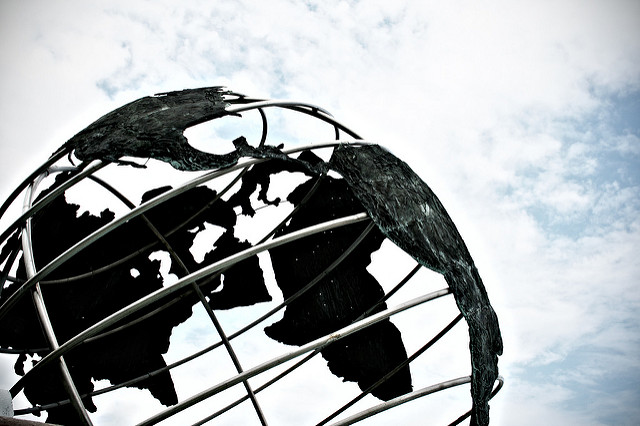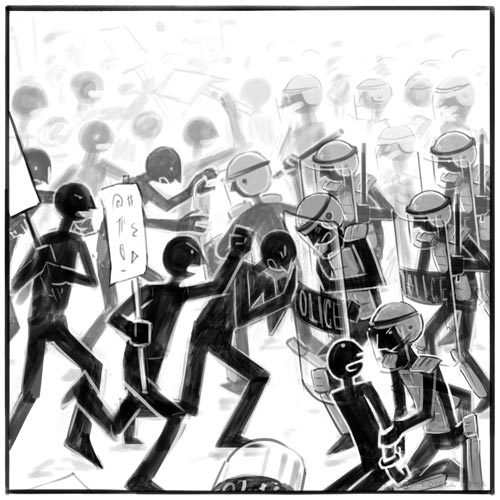Dictators have fallen in Tunisia, Egypt, Libya, and Yemen. The Syrian regime is against the ropes; many think it’s only a matter of time until Assad leaves by choice or by force. Regimes in Bahrain and Morocco face sustained challenges from opposition activists. Some area experts anticipate fresh outbursts in Jordan, Egypt, and Iran.
But here’s the big question: will these changes bring freer systems to power? A new paper suggests we can ignore the nature and outcomes of “revolutions” and instead focus solely on economic conditions.
If Page Fortna and Reyko Huang are right, and their findings extend out-of-sample, then the Arab Spring uprisings will have little or no effect on democratization. Instead, the countries that were already democratizing will continue to do so, whereas the status quo will prevail in the others. Although they limit their discussion to democratization after civil wars, Fortna and Huang find that the countries that become democratic after civil wars were on their way to democracy anyway—the civil war was a hiccup during the democratization process rather than a catalyst or an inhibitor.
Instead, the most important correlates of democracy, according to their study, are economic. In short, economic growth helps democracy, whereas oil wealth hinders it. This echoes Pzreworski and Limongi’s claim that economic development is key. For instance, apparently no democracy has ever failed after it has surpassed a GDP per capita of $11500 (in 2005 constant US dollars). Fortna and Huang also find that oil wealth is associated with authoritarian regimes, which echoes Ross’s recent findings that oil wealth negatively impacts democratization and civil peace. This is clearly bad news for the uprising in Libya, where oil exports constitute more than 30% of GDP.
If Fortna and Huang are right, then the countries with any real hope of democratic transition are, ironically, those where no sustained uprisings took place, like Jordan, which has the economic growth without the oil curse. We can also feel optimistic about Tunisia, but Fortna and Huang would say so whether or not the Jasmine Revolution had occurred. Syria will likely be a casualty of the oil curse. Egypt and Yemen are crap-shoots if poverty and inequality are barriers to successful transition to democracy—and these issues won’t be quickly resolved in their current political environments. Libya probably won’t democratize because of the oil issue, and we shouldn’t expect much out of Saudi Arabia, Kuwait, and other oil-rich regimes (Iraq, Iran, Oman, Qatar, UAE) whether uprisings occur or not.
Their model is clearly a simplification, but simplicity is also its appeal. Time will tell whether the simplest prediction is the best.
I challenge this perspective in my next post. Stay tuned for Part II.







3 comments
Fortna’s response coming soon…